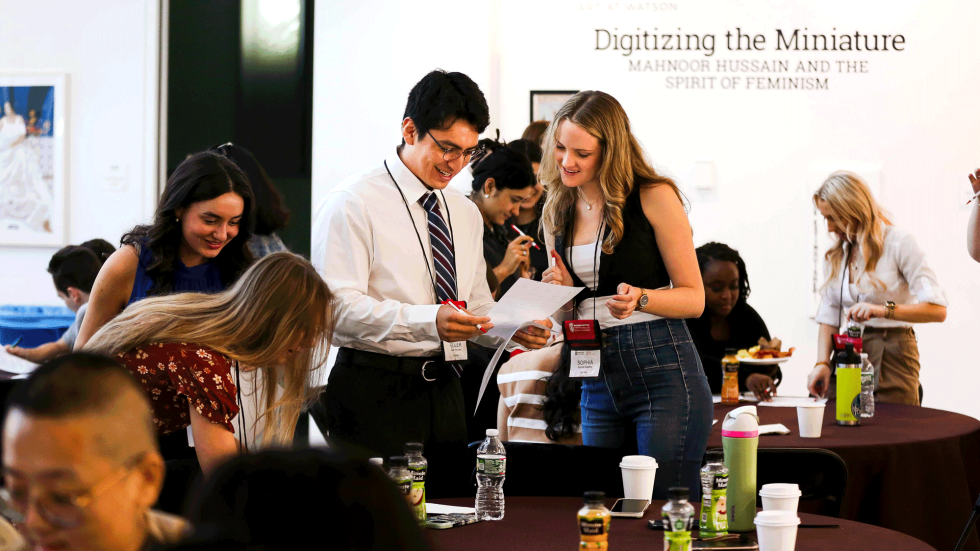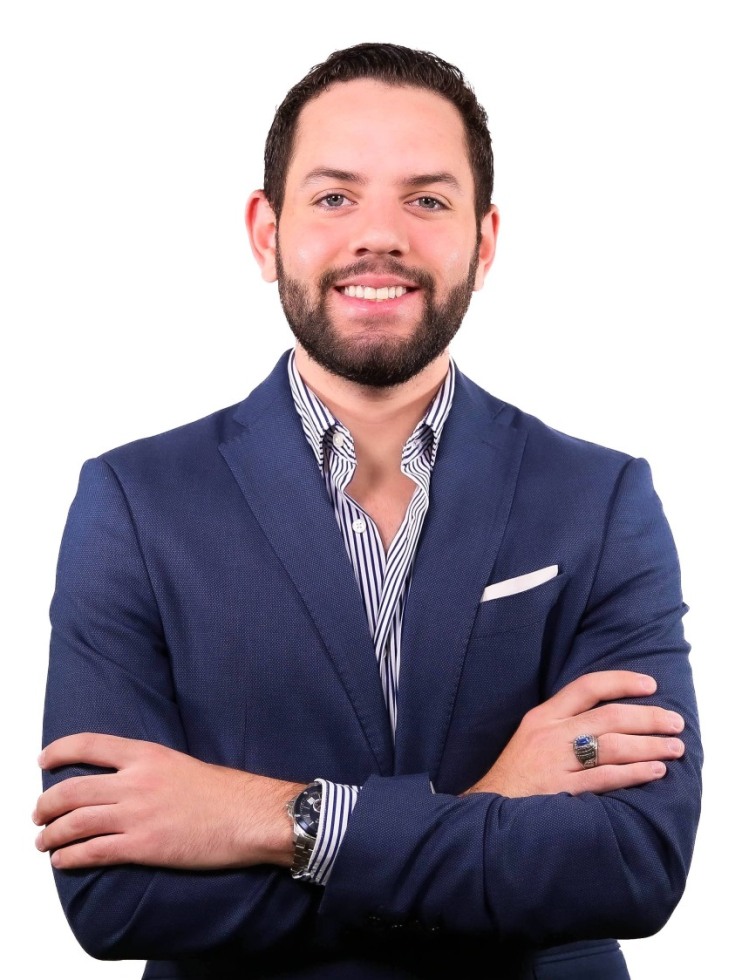The Watson Institute welcomed 72 new Master of Public Affairs (MPA) students in June, including three students seeking a dual degree in the Master of Public Health (MPH) program. The cohort will participate in a rigorous one-year degree program (two years for the dual-degree students) that strongly emphasizes learning through practice and will prepare them to be public policy leaders, analysts, and advocates in government, politics, and the nonprofit and private sectors, both in the U.S. and abroad.
Faculty Director of the MPA Program David Blanding welcomed the incoming class, “As in past years, the members of this year's MPA cohort come from a wide range of backgrounds and have a wide variety of policy interests and experiences,” he said. “I am most excited, however, for the deep relationships we hope they will forge, the excellent work we hope they will produce inside and outside our classrooms, and the personal and professional growth we hope they will exhibit in the months ahead,” he added.
This year, 55% of the incoming MPA class are U.S. citizens representing 15 states and one U.S. territory; 41% of the U.S. students come from historically underrepresented groups. International students comprise 45% of the cohort and hail from 11 countries, including Afghanistan, Bangladesh, Belgium, Brazil, China, Germany, India, Italy, Japan, Russia and Tajikistan. The cohort also includes two military veterans, one active-duty military student, and five alumni of Historically Black Colleges and Universities and Hispanic Serving Institutions.
Every year, through a highly competitive admissions process, the program attracts rising leaders who have already been working in the public affairs space. Associate Director of Admissions and Recruitment for the MPA Program Catherine Rodarte noted that is especially true of this year’s cohort. “I'm excited that we have many students with professional experience, including former city managers for small towns, former staffers on Capitol Hill, former nonprofit leaders and former military personnel,” said Rodarte.
Elena Bernardi, originally from Addis Ababa, Ethiopia, is one of the new MPA students who brings significant professional experience into the program. Bernardi obtained a bachelor’s degree in peacebuilding and development from Eastern Mennonite University with foundations in law from Université Libre de Bruxelles in 2020. Before arriving at Brown, she worked at FHI 360, The World Bank and a British risk-assessment firm on conflict resolution, international development and countering violent extremism. Most recently, Bernardi worked with various institutions in Seattle on labor management, community development, and diversity, equity and inclusion issues. She also led the public relations efforts of a private Ethiopian museum.
“I love that Watson offers a program for someone in every professional stage,” said Bernardi. She said she expects the program to give her “a robust range of skills and networks” to help her switch gears in her career and looks forward to experiencing change and making lasting relationships while at Brown.
Nathan Hostert, another new MPA student with substantial prior professional experience, said the transition back into the classroom has been smooth for him. Hostert hails from Wichita, Kansas, and graduated from Northeastern University with a bachelor’s degree in political science in 2021. Most recently, he worked as a policy analyst for Massachusetts State Senate President Karen Spilka, developing legislation on issues ranging from early education to health care policy.
Rodarte cited the diversity of the students’ backgrounds and interests as a strength of this year’s class. “The diverse backgrounds of our students match the diverse challenges they are trying to address through their policy work,” she said. “Our students are working on everything from voting rights to how different states in the U.S. work with Indigenous communities to ensure shared governance and not just imposition from the federal government.”
Hostert said he has already found the diversity of experience students bring to the program beneficial. “The professors encourage students to bring their professional experiences into classroom discussions, and the wide diversity of backgrounds makes learning here more exciting,” he said.
Rodarte noted that Brown MPA students tend to have a sense of urgency about the policy issues they want to work on, making the program’s one-year format extremely attractive. “Our students have identified pressing societal challenges and issues that urgently need solutions. The fact that they can gain a toolkit, an academic foundation, and a network that will allow them to bring these solutions to society in one year is one of the major elements that help our program stand out,” she said.
New MPA student Juan López-Santiago, a native of Ponce, Puerto Rico, who recently earned his bachelor’s degree in Global Studies from Loyola University Maryland, shared the same sentiment, “As a PPIA (Public Policy & International Affairs Program) alumnus, I had the option to pursue other two-year programs, but Brown recognizes that some of us have the drive and urgency to complete an MPA in one year, allowing us to swiftly continue our missions to enact change.”
López-Santiago noted that the program's strong emphasis on bridging theory and practice to directly impact communities aligns perfectly with his passion for making a difference in his home in Puerto Rico. “I'm particularly eager to apply what I learn to address the unique challenges facing Puerto Rico, using my skills to contribute to its development,” he said. “Brown’s distinguished faculty share a deep commitment to critical issues in American politics, making it an inspiring place. I've already experienced how open they are to informal conversations. I'm grateful for their willingness to guide us, helping us refine our interests and reach our full potential,” he added.



